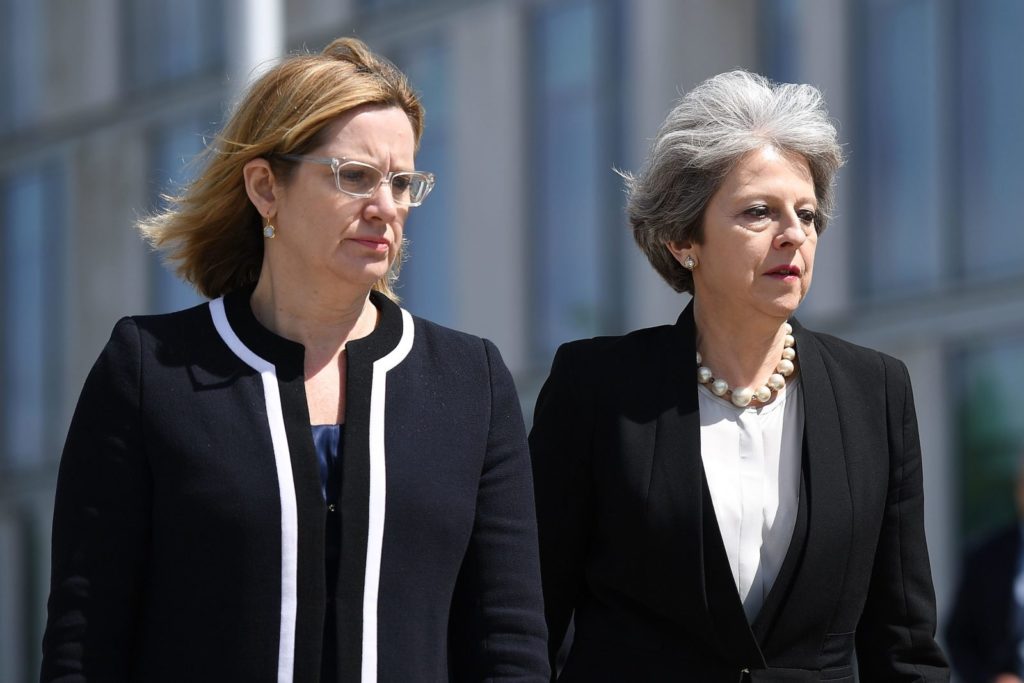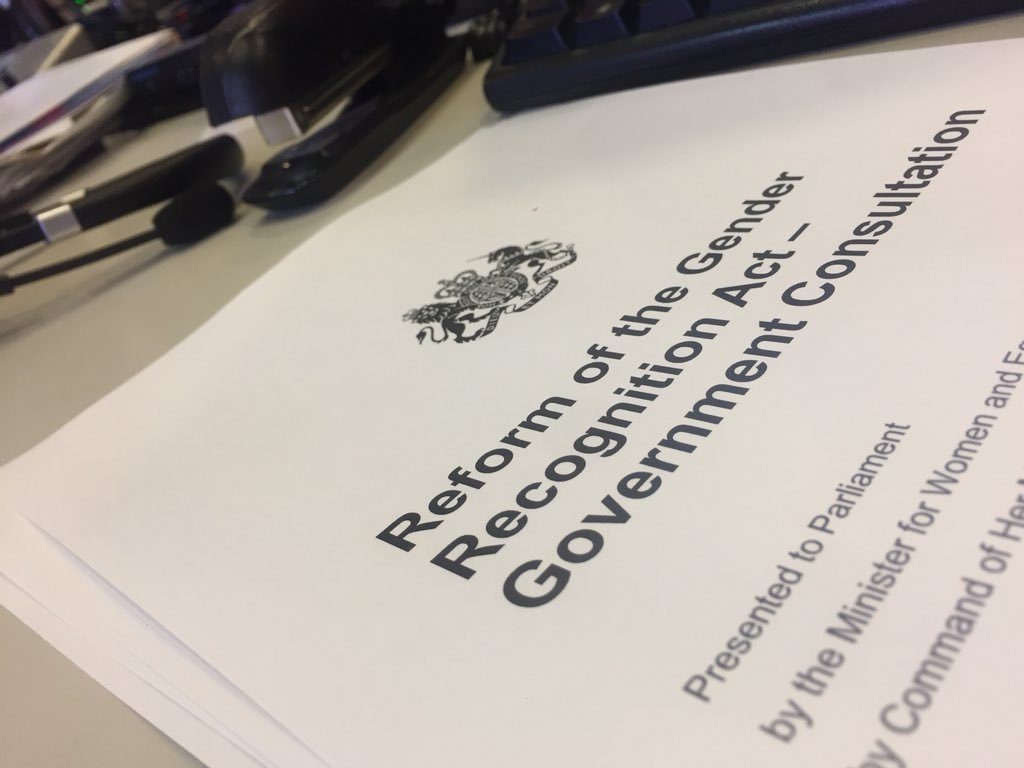Crucial reforms to allow trans people to self-identify allegedly delayed by UK equalities minister Liz Truss

Liz Truss is the new minister for women and equalities. (Getty)
Vital reforms that could have allowed trans people to self-identity have been reportedly delayed by ministers in a move sanctioned by UK equalities minister Liz Truss.
Against a backdrop of rocketing anti-trans violence in England and Wales and overwhelming support from the public, ministers postponed plans to reform gender recognition laws, according to the Mail on Sunday.
While the potential reforms have been reportedly delayed, a source told the PA that the minister is “committed” to completing the review.
The Government Equalities Office informed PinkNews that the department will announce “proposed next steps in due course.”
Former prime minister Theresa May announced that the Gender Recognition Act – the bedrock of gender recognition law in the UK – will be reformed in a PinkNews article in 2017.
Speaking at the PinkNews Awards 2017, May vowed to “streamline” the GRA, to make it easier for trans people to change their legal gender, in stark contrast to US president Donald Trump.
GRA reform is “low down the list of priorities”, claims source.
A senior Government source told the Mail on Sunday that reform plans would be allegedly “kicked into the long grass” until after the next election, “and probably much later than that.”
As Brexit bubbles, Number 10 have allegedly placed gender recognition law reform “low down the list of priorities”.
This comes after a 16-week public consultation was held on how and whether to reform the GRA in 2018. It was anticipated by advocates that possible reforms would enable trans folk to self-identity.
Currently, trans people must prove they have lived in their gender for two years and have a medical diagnosis of gender dysphoria, after which their application for a Gender Recognition Certificate is approved – or refused – by a panel of people who don’t meet them.
Former defence secretary and then equalities minister Penny Mordaunt confirmed to PinkNews in July that the results of the consultation would be announced “as soon as possible.”
However, on July 24, the day Johnson took office, an equalities office spokesperson confirmed that the response had been delayed.

Amber Rudd and Prime Minister Theresa May. (Leon Neal/Getty Images)
While the publication of the results of the consultation will allegedly be delayed, a source confirmed to the PA that Truss, who is also International Trade Secretary, will see the potential reforms through.
“The Secretary of State is committed to following through with the consultation in due course,” they told the PA news agency.
Furthermore, a GEO spokesperson told PinkNews: “It is vital that the next steps on any potential reform of the Gender Recognition Act are carefully planned, and have the right backing so they can have a positive impact on the adult trans community in the UK.
“We had more than 100,000 responses to our consultation and have met with 140 organisations to ensure that we have taken into account views and concerns from all sides of the debate.
“We will announce more detail on our proposed next steps in due course.”
Dawn Butler: “Johnson’s government are deliberately creating a hostile environment for transgender people.”
Dawn Butler, Shadow Secretary for Women and Equalities slammed the delay.
She said in a statement: “Boris Johnson’s government have failed to publish the consultation results and are deliberately creating a hostile environment for transgender people.

Shadow Secretary of State for Women and Equalities Dawn Butler. (Jack Taylor/Getty)
“We must put a stop to this irresponsible behaviour. Almost half of trans people in Britain have attempted suicide at least once and 84 per cent have thought about it.
“A Labour government will help save lives not ruin them. We will champion rights for LGBT+ communities across the UK and reform the Gender Recognition Act.”
This was echoed by LGBT+ Labour in a Twitter statement published today:
We are disgusted to hear that this Tory government are kicking reform of the Gender Recognition Act into the long grass. Proving once again that the Tories do not care about the wellbeing of trans people. This is unforgivable. pic.twitter.com/Y3t4K8Iu4O
— LGBT+ Labour (@LGBTLabour) October 6, 2019
Trans activists react: “GRA reforms will happen. Stay positive, friends.”
Some trans organisations remained optimistic at the news, emphasising that though there is a delay, reforms “will happen”:
It's no surprise that proposed GRA reforms are being kicked into the long grass until after a General Election. Lots of things are in the long grass until after the General Election. GRA reform will happen and our collective voice is crucial in that. Stay positive friends. ❤️— Trans Actual (@TransActualUK) October 6, 2019
Mermaids, a charity that supports trans, non-binary and gender-nonconforming youth, berated the manoeuvre in a lengthy Twitter thread:
https://twitter.com/Mermaids_Gender/status/1180823745700741121
Gender Recognition Act: a quick guide.
The GRA is the mechanism that allows trans people to apply for a Gender Recognition Certificate (GRC) and change the gender on their birth certificate.
Currently, trans people must prove they have lived in their gender for two years and have a medical diagnosis of gender dysphoria, after which their application for a GRC is approved – or refused – by a panel of people who don’t meet them.
Reforming the GRA to allow trans people to self-determine their gender when applying for a GRC, without a medical diagnosis or the need to prove their lived gender, has been called for by Stonewall and other LGBT+ organisations.

The public consultation on the Gender Recognition Act was answered by over 100,000 people. (Conatus News)
A public consultation was held on how to reform the GRA, which received more than 100,000 responses, last year.
In practice, most trans people self-identify their gender in their day-to-day lives, as a GRC is not required to access gendered spaces such as bathrooms or changing rooms.
But self-ID has become a cornerstone of the backlash against GRA reform from some anti-trans feminists.

